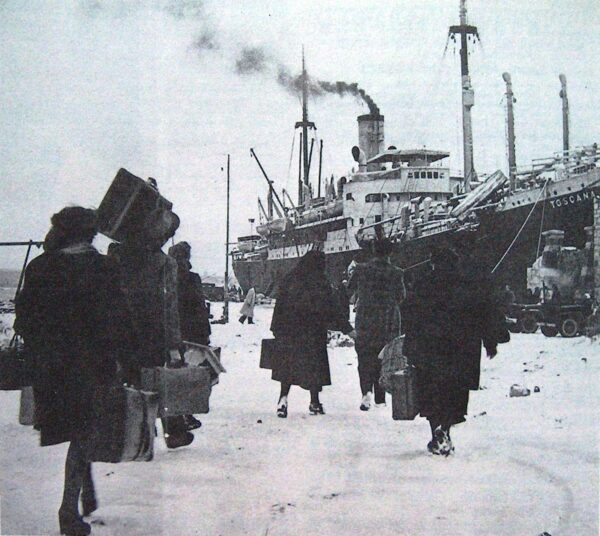Every year on February 10th, Italy observes the Giorno del Ricordo (Day of Remembrance) to honor the victims of the foibe massacres and the forced exodus of Italians from Istria, Dalmatia, and Fiume in the aftermath of World War II. The commemoration, established by Law No. 92 of March 30, 2004, aims to preserve the memory of these tragic events and the complex history of Italy’s eastern border.
Official Ceremonies in Florence
In Florence, the city will pay tribute to the victims with official ceremonies and public events. On Monday, February 10, 2025, the municipal government will lower flags to half-mast as a sign of remembrance. The day’s program includes several key moments:
- 10:30 AM: A wreath-laying ceremony at the memorial in Trespiano Cemetery, attended by Benedetta Albanese, Councillor for the Culture of Memory.
- 12:00 PM: The unveiling of a commemorative plaque at the Sant’Orsola complex (Via Guelfa, 25), recognizing the suffering of the Giulian-Dalmatian exiles. Sant’Orsola served as a refugee center from 1945 to 1955, hosting 580 exiles. The plaque will bear an inscription reflecting their journey and resilience. Several officials and representatives from historical and cultural organizations will participate in the ceremony.
- Afternoon: A special session of the City Council will mark the occasion, featuring speeches by Enrico Nistri from the National Association of Venezia Giulia and Dalmatia and Matteo Mazzoni from the Tuscan Institute for the History of the Resistance and Contemporary Age.
Educational Initiatives and Public Discussions
Beyond the official ceremonies, Florence is also promoting awareness and education on the historical significance of the Day of Remembrance. On Wednesday, February 12, at 10:30 AM, the Biblioteca delle Oblate (Via dell’Oriuolo, 24) will host a public discussion organized by the municipality, the library, and historical associations. The event will include:
- A keynote speech by historian Matteo Mazzoni on the historical context of the eastern border.
- A discussion on the Giulian-Dalmatian exodus in Florence, led by Daniela Velli, President of the Florence Committee of the National Association of Venezia Giulia and Dalmatia.
- First-generation exile testimonies from Riccardo Simoni and Graziella Declich.
- The screening of Magazzino 18, a documentary by Simone Cristicchi.
- Presentations by high school students from the Russell-Newton Institute in Scandicci, sharing their experience in a cultural exchange program with the Italian high school in Rijeka (Croatia).
- A musical performance by the Fiesole School of Music, featuring third-generation exiles.
The University of Florence’s Tribute
The University of Florence will also commemorate the occasion with a ceremony at Sala Strozzi (Via La Pira, 4) on February 10 at 10:30 AM. Rector Alessandra Petrucci will introduce the event, followed by the screening of a video based on archival materials. The university’s historical archives hold letters from Giulian-Dalmatian students, offering firsthand accounts of exile and internment. A violin performance by Alessio Grossini of the university orchestra will close the event.
Remembering History
The Giorno del Ricordo serves as a national moment of reflection on a painful chapter of Italian history, ensuring that the memories of those who suffered displacement and persecution are preserved. Tuscany, with its deep historical ties to the exiled communities, continues to honor their legacy through commemorations, education, and dialogue.

